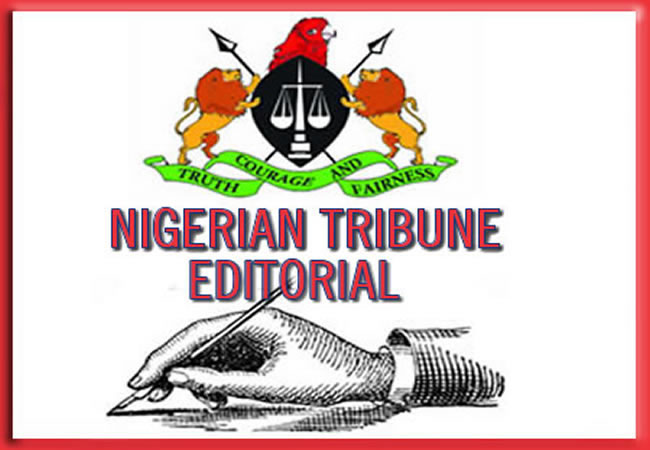FOR obvious reasons, Nigerians have not been unduly excited since the announcement, last week, that the House of Representatives had begun the process for the decentralisation of policing in the country. And that is simply because the issue of state policing, even though a central recommendation contained in the reports issued by constitutional conferences organised by different administrations in the country, has dragged on for ages in the polity and made no headway in the legislature. The proposed legislation has the central objective of altering the constitution of the Federal Republic of Nigeria, Cap. C23 Laws of the Federation of Nigeria, 2004 to transfer ‘Item 45’ from the Exclusive List to Concurrent Legislative List and for related matters. As indicated in the bil’s Explanatory Notes, it seeks to “grant the National Assembly and state Houses of Assembly the power to make laws with respect to the creation, formation and control of police and other government security services in Nigeria.” Clause 2 of the bill seeks to amend Section 214 Subsection 1 of the Principal Act, line 2, by deleting the clause, “and subject to the provisions of this section, no other Police Force shall be established for the federation or any part thereof.”
It is apparent that if carried through by both chambers of the National Assembly and affirmed by at least two-thirds of the state 36 legislatures, the proposed bill will facilitate the establishment of state policing in the country and lay to rest decades of agitations by different sections of the country for a return to a decentralised policing structure. However, the legislature has often raised the hopes of Nigerians on state policing, only to dash them thereafter. For instance, in January 2020, the then Speaker of the House of Representatives, Rt.Hon Femi Gbajabiamila, indicated that the Green Chamber under his leadership would amend the constitution to give legal backing to the various security interventions in parts of the country. The Speaker, who made this known while delivering his welcome address at the beginning of plenary following the lawmakers’ resumption from the Christmas and New Year break, spoke against the backdrop of the controversy that had surrounded the formation of the Western Nigeria Security Network (WNSC) codenamed Amotekun by the governments of the South-West geopolitical zone to complement the work of the Nigeria Police Force (NPF).
He had said at the time: “Too often, it has seemed to me that lost in these interactions is the hard, brutal and unavoidable fact that Àmòtékùn and other such state or zonal interventions that already quietly exist in other parts of the country are a desperate response to the vile manifestations of insecurity that trouble the lives of citizens, depriving them of the peace and security that gives life meaning. I do not know that Àmòtékùn or whatever iterations of it may follow represents the ultimate or perfect solution to the problem of insecurity in our country. Nobody does that.” Central to Gbajabiamila’s argument was the belief that the localised manifestations of insecurity across the country underscored the need for localised approaches taking those peculiarities into account. The Senate leadership also toed the same path, with the then Senate President Ahmad Lawan harping on the need to dispense with the warped security architecture in the country. As it turned out, however, the promises were merely rhetorical, and nothing concrete was done to make state policing a reality.
Of course, we welcome the present move by the House. It is a no-brainer that for an ethnically and linguistically diverse country like Nigeria, decentralised policing is the way to go. As we noted in previous editorials, Nigeria was never conceived as a unitarised entity giving no room for the component units to evolve according to the pragmatic realities of their existence. The proposition for state, regional or local police, we pointed out, was not meant to rival the existing police framework but to complement it, allowing the citizenry an opportunity to live safer and more secure lives. We have found no reason to change our view that Nigerians have a right to expect a country policed effectively in accordance with the dictates of federalism.
We believe that the proposal to amend the constitution and grant policing powers to the states should be supported by all those who set great store by a working federal system in the country and desire an end to the pervasive insecurity across the land. While we recognise that the federal system of government does not necessarily operate in exactly the same form around the world, it is still the case that a system in which the constituents of a supposed federal entity have no powers to provide security within their territories easily makes the provision of security suspect and ineffective in the long run. Security and order are organised around human beings and are necessarily a function of their locality. It is therefore futile to expect that effective security could come outside of the locality where individual human beings reside, which is what has been in operation for so long in Nigeria. There is, of course, a need to put in place necessary provisions for checks and balances on the way state police will operate, if and when eventually legalised, to prevent some authoritarian persons from abusing its use.
Ultimately, effective security calls for state policing to be made constitutional. In this regard, it is commendable that the House of Representatives is spearheading a fresh push for it. Nonetheless, there must be sustained democratic pressure from outside the legislature to achieve the goal. The Green Chamber, having kickstarted the fresh move for state policing, should not be allowed to abandon the advocacy mid-way and return to the status quo. In this regard, civil society, in particular, must approach the issue with vigilance and commitment. It is also hoped that support for the move will come from the 36 state chief executives so that the country will be put in a better position to confront the security challenges that continue to make life one long nightmare across the country.
READ ALSO FROM NIGERIAN TRIBUNE






